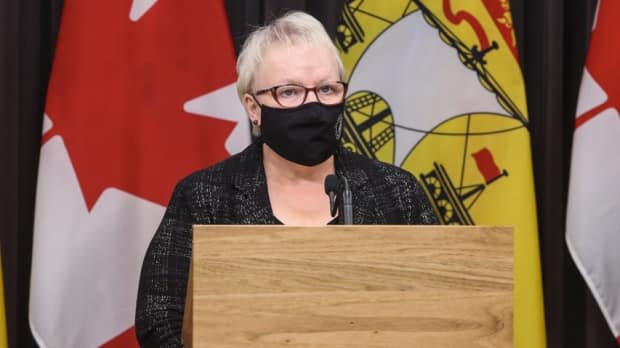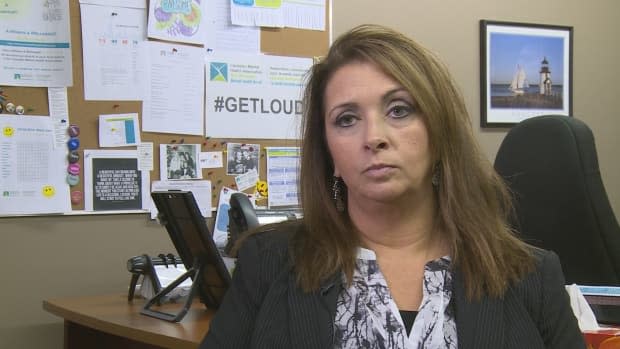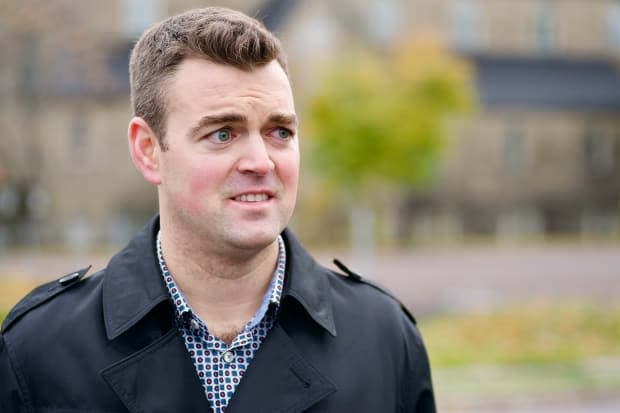More walk-in clinics, mobile crisis units coming this year, vows health minister

New Brunswick Health Minister Dorothy Shephard says she's working to get people the help they need when they're ready to ask for it and before they go into a deeper crisis.
It's a strategy that depends on providing more same-day service for counselling, similar to a walk-in clinic that opened in Campbellton last December.
In its first six weeks, Shephard says the clinic handled 97 people coming in without appointments.
And she says 94 per cent of those patients reported being satisfied with a single session of counselling.
Shephard says the model will be copied in another 13 locations at community health centres around the province, all by next October.
It's part of a stepped care approach that responds to people with appropriate resources before their situation escalates.
"When I talked about meeting the needs of people with lower acuity, the whole purpose of that is so that we can utilize professions such as counselling therapists and social workers to help intervene in those issues earlier, so that those people don't progress to higher acuity," said Shephard at a Tuesday news conference.
"And if we do our job well, we can free up our psychiatrists and psychologists for patients with more complex needs."
Shephard would also like to see the program expanded to university campuses.
Integrated mobile crisis units coming to northern N.B.
The minister says she has also pledged about $900,000 to run more mobile crisis response teams in partnership with the Vitalite Health Network and the RCMP.
Since October, the Saint John police force has partnered with Horizon Health to create teams of officers and nurses, who can respond to crisis calls or do check ups on individuals who are considered high risk.
Vitalite will work with similar funding over three years to operate integrated crisis units in Kent County, Edmundston, Campbellton, Bathurst and the Acadian Peninsula.
"I would say this could be ready within a couple of months," said Rino Lang, Regional Director of Adult Mental Health and Addiction Services at Vitalité Health Network.
Lang says teams in northern New Brunswick would rely on police officers and clinicians, who may be social workers or nurses, to work together, although they may not necessarily travel in the same vehicle.
"With the crisis mobile teams, clinicians who would be able to attend mental health-related calls accompanied by police members in order to ensure their safety," said Lang.
"The clinician can then perform an assessment on the person in crisis which will allow appropriate treatment to commence and which may prevent the necessity of taking the individual to the hospital."
Lang says mobile crisis units in Moncton have had great success in the past five years.
He said 85 per cent of those service calls do not require the patient to be taken to hospital.
Provincial youth centre to open in 2024
Shephard says a provincial youth centre should be open in Moncton by 2024.
She says the province budgeted $2 Million for planning and to scout for locations.
A location has not been selected yet.
She says the facility will form a centre of excellence for youth mental health care but she says young people will also be supported in the communities where they live.
Pandemic continues to drive demand for mental health support
Christa Baldwin, the executive director of the Canadian Mental Health Association in New Brunswick says the pandemic is pushing people into stress and distress.
When the CHMA surveyed 3,000 people across the country in May, 38 per cent said their mental health has declined due to COVID-19.
Baldwin says the number of people who have contemplated suicide or self-harm is also on the rise.
She said their research shows that figure was 2 per cent of the population before the pandemic, six per cent last April, and rose as high as ten per cent last fall.
"We're just getting started into the mental health aspects of this pandemic in terms of depressions, anxiety, healthy workplaces, PTSD, domestic violence," she said.

"And generally, when you look at trauma, it's not until people come out the other side of the crisis, where they allow themselves to move out of survival mode and try to get into thriving mode and really finally let themselves feel what they felt in that pandemic.
"If we don't have the appropriate resources in place for mental health come this summer, for example, I think this province is in for a world of hurt."
Baldwin says she hopes the minister also finds a way to support non–profits and community organizations that have already developed effective partnerships and are already offering education and support.
No mental health advocate
In December 2019, a Liberal motion to create an advocate position passed unanimously in the legislature.
The role would provide an impartial and independent voice for people with mental health problems and their families.
The motion was non-binding and the government was not required to budget for it.
Shephard's action plan makes no mention of filling the job.
And when asked Tuesday if it was coming, she made no promises.

Liberal MLA Rob McKee said he was disappointed that was missing from the action plan.
"Another issue that I personally have been advocating for, for a long time, is the expansion of the mental health court." said McKee.
"That was re-established in 2017 by the previous government and we didn't see anything whatsoever today."
"In my field of criminal defence work, I see every day that I practice, those issues in the courts."
"If we had access and collaboration to get people the treatments that they need, they would stop going back to court."
Overdose prevention sites
The minister's plan calls for the implementation of overdose protection sites by the end of 2021. .
Shephard says these would be safe places where people who are struggling with addictions could ingest their drugs.
They would have access to testing materials to determine what is in their drugs.

One of the adulterants that's most concerning to people who work in harm prevention, is the use of fentanyl in black market opioid pills.
The facilities would also ensure that needles would be disposed safely.
Shephard said this would be safer for the community and an opportunity to "meet people where they're at."

